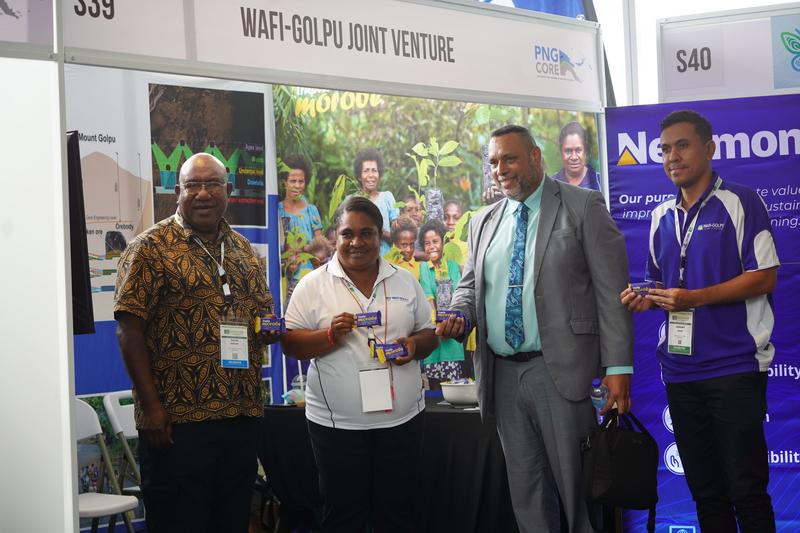The 2025 Community Affairs and National Content Conference and Exhibition (CANCONEX), held as part of PNG Resources Week, officially concluded at APEC Haus following three days of dynamic engagement, strategic dialogue and powerful storytelling.
Hosted by the PNG Chamber of Resources and Energy, CANCONEX 2025 brought together over 1,400 delegates, 78 exhibitors and 60 speakers representing national and provincial governments, landowner leaders, resource developers, civil society and the broader business community.
The conference was officially opened by Prime Minister James Marape, whose keynote address reaffirmed the government’s commitment to inclusive development and responsible resource management. His presence set a strong tone for the rest of the event, highlighting the transformative role of the resource sector in building schools, hospitals, roads and livelihoods across Papua New Guinea.
Reflecting on the event's momentum, PNG CORE Senior Vice President Richard Kassman said, “CANCONEX is not a side event; it is the heart of our national conversation on inclusive development. It brings together the voices that matter most: landowners, provincial leaders and communities whose futures are directly tied to the resource sector. This is where policy meets people, and where real progress begins.”
Throughout the conference, landowner companies and provincial representatives were acknowledged not only as stakeholders, but as rights-holders, custodians and builders of the nation’s future. The presence of the Autonomous Bougainville Government (ABG), with its own dedicated platform, underscored the importance of inclusivity and mutual respect in shaping national unity and economic participation.
A standout session led by East Sepik Governor Allan Bird focused on agriculture’s role in community resilience and economic diversification. His message underscored the transformative power of empowering local communities through sustainable farming practices and resource-linked agribusiness.
Key discussions centred on instruments such as Landowner Beneficiary Identification (LOBID), social mapping and identification programmes—critical tools for ensuring benefits reach the right people, in the right way, at the right time. The rise of landowner companies like KutMor Limited, Trans Wonderland Limited, PNG Mining and Petroleum Hospitality Services Ltd, and Turra Holdings Limited was celebrated, with their stories highlighting the role of family group businesses as social safety nets supporting clans and communities.
.jpg)
Delivering a compelling closing address, Kassman stated, “National content is not a box-ticking exercise. It is the single most powerful lever we have to build local capacity, retain value onshore, and deliver dignity to our people. The true prize is not the gold, gas or copper beneath the ground—but what we do with it to uplift those who live on the land above it.”
He emphasised Papua New Guinea’s unique constitutional recognition of customary land ownership—a global distinction that underpins local economies and empowers landowner-led development. He also shared moving stories of intergenerational impact, including a janitor at Santos who supported his daughter through university, and a Trans Wonderland employee whose son and grandson have built stable livelihoods within the same company.
Six strategic takeaways emerged from the conference: formalising landowner identification frameworks, scaling community-based enterprise models, improving transparency in benefit management, strengthening workforce development for women and youth, fostering long-term employment strategies and elevating CANCONEX as a central forum for shaping national content policy.
From these, three core priorities were identified: empowering landowner-led enterprise development, ensuring inclusive benefit distribution and building systems for intergenerational transformation.
The Resources Summit—a high-level dialogue on finance, policy, infrastructure and innovation—and the Gala Dinner featuring the Legacy Awards capped the CANCONEX 2025, honouring excellence and leadership across the resource sector. Attendees and proponents were hopeful that these events will carry forward the spirit of CANCONEX, ensuring that technical discussions remain grounded in the human stories and community impact that define Papua New Guinea’s development journey.










